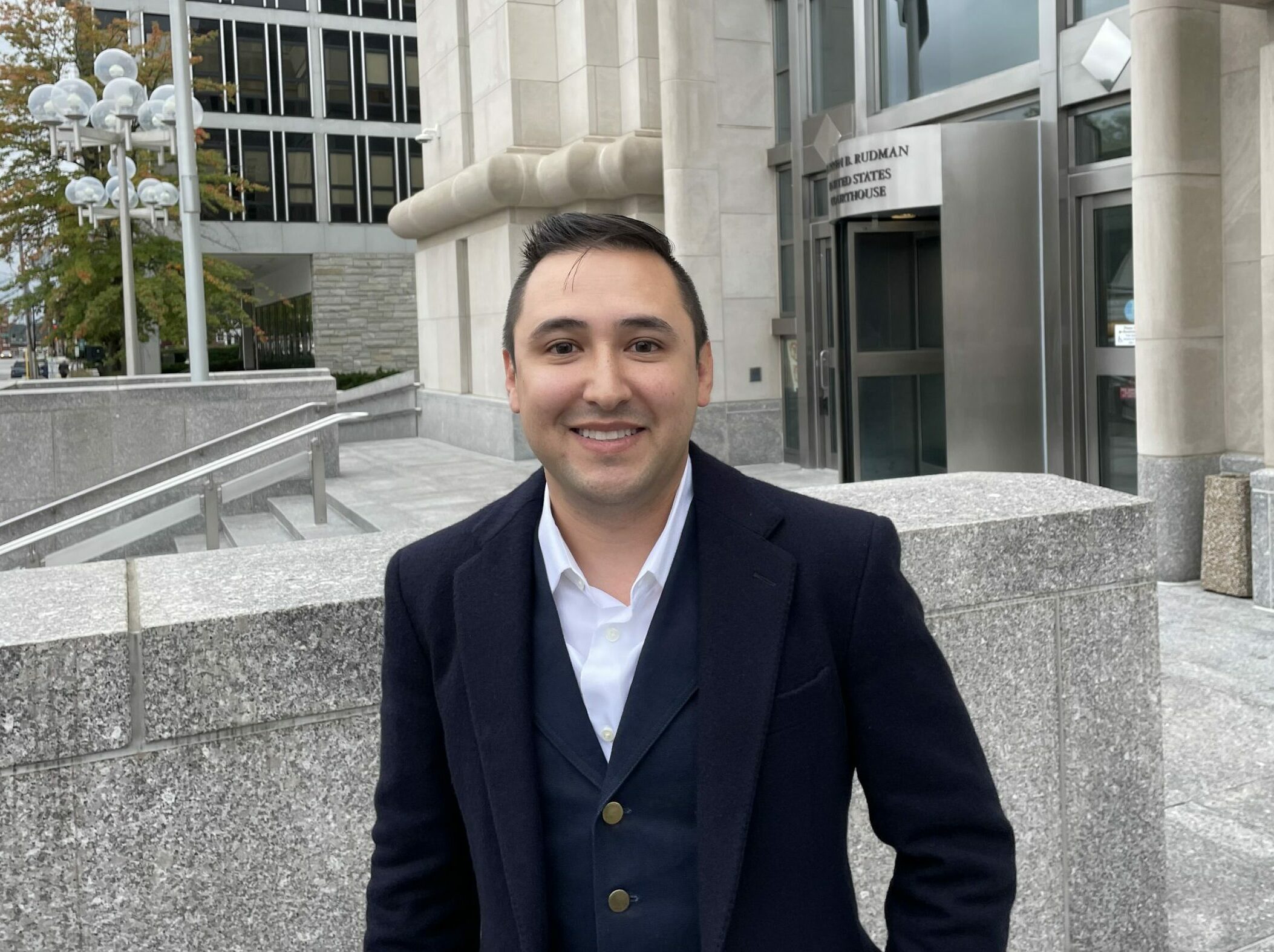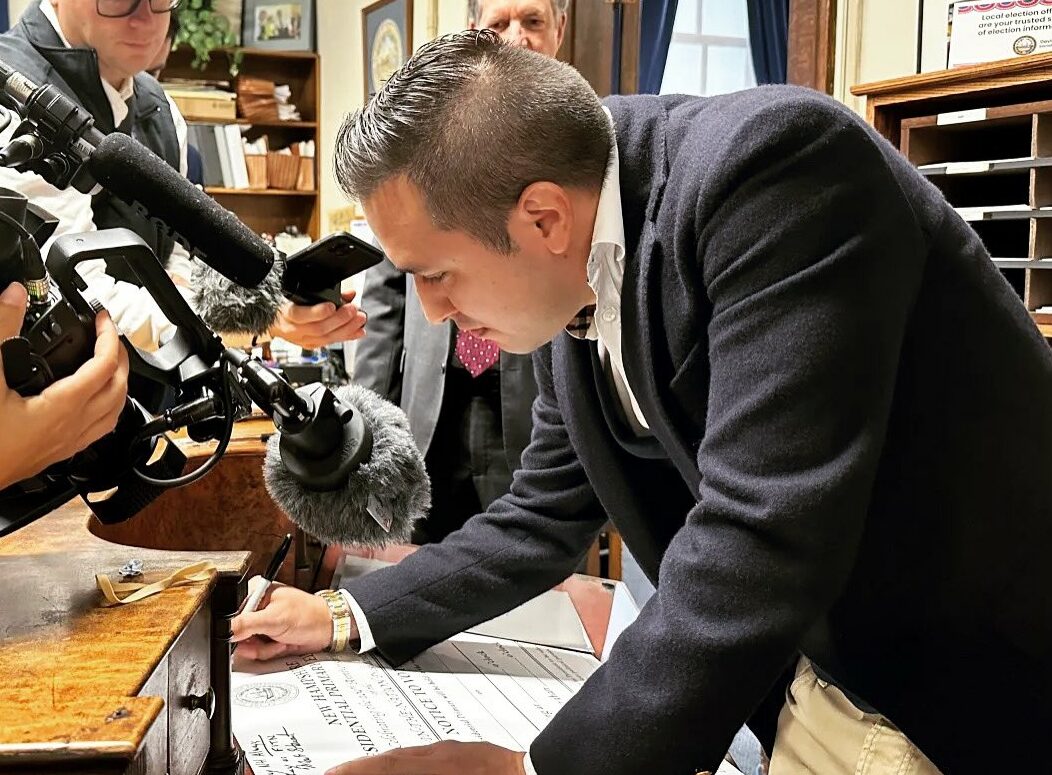Unknown Candidate Trying to Force Trump off Ballot Now Faces Felony Charges

He’ll always have Noshua.
Indicted on 33 criminal counts for allegedly filing false tax returns, John Castro’s presidential campaign would be facing a serious roadblock if that campaign had a car. Or knew where the road was.
The law school graduate, who is not a licensed attorney, is in trouble for allegedly making up deductions for clients of his Texas tax law firm, according to the indictments. Castro allegedly used the fake deductions to collect big refunds for clients, and split the take with them, the indictment alleges.
Castro launched his presidential ambitions as part of his effort to boot former President Donald Trump from the GOP presidential primary ballot in 32 states, including New Hampshire. His latest New Hampshire lawsuit is pending while United States District Court Judge Samantha Elliott decides whether or not Castro’s $800 campaign with two volunteers, no offices, and no New Hampshire Republican supporters counts as a viable concern.
Castro was indicted in United States District Court in Fort Worth, Texas, on Jan. 3, the same day he was in Concord trying to convince Elliott that sending his brother-in-law and cousin to New Hampshire to plant 15 Castro for President lawn signs on vacant lots outside Nashua counts as a serious presidential campaign.
The New Hampshire campaign swing was headed by volunteer campaign David Garza, who is also Castro’s personal assistant and brother-in-law. Garza brought his cousin and fellow Castro employee, Alexander Gomez. Garza testified they started the one day of fieldwork in a city south of Manchester called Noshua, though Gomez testified it was called Joshua.
If any New Hampshire Republican Castro voters exist, they may be dissuaded by indictments that lay out a years-long scheme to defraud the government and lie to clients.
According to the indictments, Castro’s tax law firm attracted clients by offering large refunds, larger than they could get filing themselves, or by employing an accountant, or by hiring an actual licensed tax attorney. One client was entitled to a legitimate refund of less than $400, but Castro promised to get back more than $6,000 from the government, the indictment states.
Castro did get the large refund by claiming almost $30,000 in deductions that the client did not have, the indictment states.
“These were not expenses that the (client) had identified or discussed with Castro and were not based on information provided by the (client) to Castro or his employees and were not approved or verified by the (client). These false statements resulted in a claimed refund of $6,007.”
Castro allegedly split the big paycheck with the client, keeping $3,000 for himself. Unknown to Castro, that client happened to be an undercover informant for the government, according to court records.
Castro presents himself as a tax attorney qualified to represent clients in federal court, though he is not licensed to do so. He explained to Judge Joseph LaPlante in October that he can act as a “federal practitioner” thanks to a loophole he found in college.
Castro thinks he’s found another loophole to get Trump off the ballot, using the 14th Amendment and the GOP nominating process. Castro is on primary ballots in several states as a Republican presidential candidate under the theory that his candidacy will confer the necessary legal standing to force Trump’s name to be removed.
Castro’s lawsuits claim that Trump is unqualified to be president due to the 14th Amendment’s anti-insurrection clause. He’s suing by alleging Trump’s continued campaign is costing Castro, potential voters, and donors. Castro has yet to prove his campaign has any New Hampshire Republican supporters, and of the $800 he raised last year, none came from any Granite State resident.
Less convoluted attempts to get Trump off the ballot have had limited success. Maine’s Secretary of State Shenna Bellows recently announced she was blocking Trump, as did the Colorado Supreme Court. Both of those decisions are pending review by the United States Supreme Court, and Trump’s name is on the ballots already printed for New Hampshire’s upcoming first-in-the-nation primary.
Granite State Republicans overwhelmingly oppose the move by Maine’s secretary of state to take Trump’s name off the ballot, according to the new CNN/UNH poll. The same poll found independent voters also oppose the action by 50 to 40 percent.
Castro is representing himself in the many so far unsuccessful lawsuits he’s filed to get Trump off the ballot based on his qualifications. He graduated from the University of New Mexico School of Law in 2013. However, The New York Times reports Castro is likely to hire a lawyer for the criminal case.



